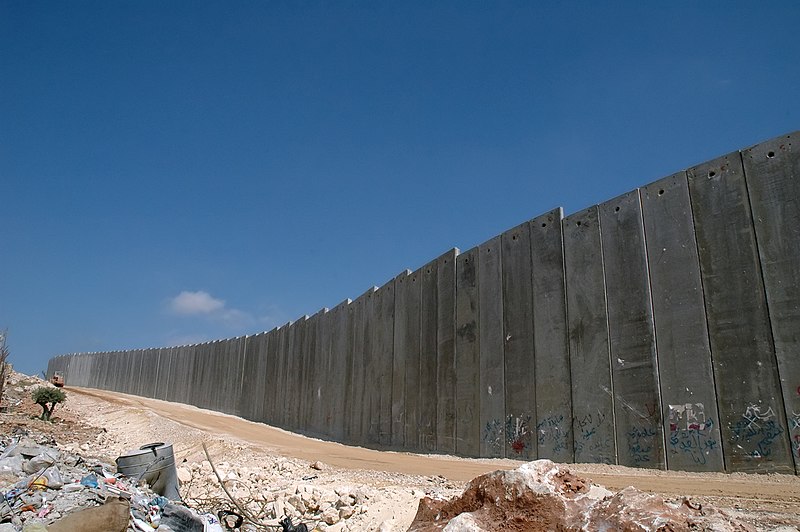Israeli Apartheid Week: Why We Need to Reject the Commodification of Anti-Racist Heroes
by Nkosi Zwelivelile
22 March 2019

Across the world, Israeli Apartheid Week 2019 is being marked with educational events and actions aimed at raising awareness of Israel’s apartheid regime’s atrocities against the Palestinian people along with building support for the global Boycott, Divestment & Sanctions (BDS) movement. Today, it is not uncommon for people to regard apartheid as a phenomenon of the past. The anti-apartheid work of people like my grandfather, Nelson Mandela, is often taught and spoken of as if disconnected from the present day. But this is a lie and a big mistake. The world is not free of apartheid and so the work of fighting and dismantling systems built on racism and discrimination cannot be over.
My grandfather famously said that the freedom of South Africa is “incomplete without the freedom of the Palestinians.” He recognised the parallels between South African apartheid and the regime imposed by the state of Israel. This reality of Israeli apartheid has become even more evident over the last few weeks, with Israel’s prime minister, Benjamin Netanyahu, publicly proclaiming that Israel “is not a state of all its citizens”. This is apartheid in action.
Like many other anti-apartheid heroes, Madiba (my grandfather’s clan name by which he became affectionately known) believed fiercely in solidarity between oppressed peoples and the Palestinian people are no exception. We must therefore be incredibly wary of any attempts to commodify the legacies of these figures or whitewash their words or beliefs – especially when these tactics are deployed by companies or institutions which are complicit in Israeli apartheid.
One glaring example of this kind of commodification is taking place right now at King’s College London (KCL) university. One of the most famous and high profile alumnus of KCL is anti-apartheid hero archbishop Desmond Tutu, a fact that the university has channelled significant time and resources into promoting far and wide. They’ve had rooms named after him, scholarships named after him and statues and posters of him displayed across campus.
At the same time, however, KCL holds a partnership with Technion – State of Technology, a leading research and development institution for the Israeli arms trade. Technion developed the remote controlled D-9 bulldozer which was used by the Israeli military during Operation Cast Lead, a war which killed 1,400 Palestinians, the vast majority of whom were civilians. These bulldozers are now routinely used to demolish Palestinian homes, factories, agricultural land and civilian infrastructure, including water pipes and networks on Palestinian territory assigned by the UN. Technion also maintains strong partnerships with multiple arms companies such as Elbit Systems which manufactures and supplies the Israeli military with drones, used regularly in attacks on Palestinian civilians.
In 2014, Tutu publicly stated that he believed Israel to be guilty of apartheid in its treatment of the Palestinian people. He also endorsed Palestinian Civil Society’s call for global boycott, divestment and sanctions against Israel until it respects the fundamental human rights of Palestinians. It is therefore deeply hypocritical for KCL to be using Tutu’s legacy to further their own brand and reputation, while at the same time willingly benefiting off of a regime of military occupation which Tutu himself condemned in the strongest possible terms.
This kind of hypocrisy must be called out. Educational institutions have such a crucial role to play in tackling the greatest challenges facing humanity; in pushing for global peace and justice. But they cannot fulfil this role while supporting Israeli apartheid. Students, workers and academics should join the call to demand that KCL ends its complicit relationship with the deadly Israeli regime.
During the 1980s, student activists across the world played a key role in challenging and de-legitimising the regime of apartheid in South Africa. In a similar way, students activists today – both in the UK and beyond – are playing an integral part in the international Palestine solidarity movement. A crucial part of this is holding their institutions to account over their connections with Israeli apartheid. Many UK universities remain deeply complicit in human rights violations against the Palestinian people through investments and institutional links.
Earlier this week, students at over 30 UK universities took action to raise awareness around this crucial issue and push for change on their campuses as part of the #ApartheidOffCampus campaign. They are truly continuing the legacy of anti-apartheid heroes like Tutu and Mandela.
Crucially though, this fight is one that must extend far beyond the Ivory towers of academic institutions, galvanising a concerted worldwide response that honours the legacy of anti-apartheid activists and draws on the history of the global anti-apartheid movement in South Africa which contributed significantly to ending the country’s own brutal regime. We cannot be afraid to call Israel what it is: a racist state that continues to perpetrate heinous crimes against Palestinian civilians. And we must hold strong in our resistance, stopping only when Palestine is free and the world rid of apartheid once and for all.